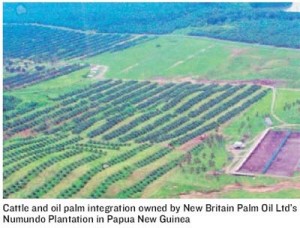Commodities Talk - By Hanim Adnan
Nations secure farmlands in poor developing countries
THE mounting insecurity over the world’s food supply, especially in staples like wheat, maize, barley and rice, has sent many food importing nations and food-based companies scampering for farmland abroad to plant their own food crops.
Food has become the new “gold,” and along with it, contentious trends have cropped up.
For example, large tracts of farmland in Russia and in poor developing countries in South America, Africa, as well as places like Cambodia and Vietnam, have either been purchased or leased to cultivate crops and the produce shipped to the investor’s country of origin.
The most obvious examples are Gulf state governments, where the United Arab Emirates (UAE) and Saudi Arabia have been active in their quest to secure food supplies.
Sudan, traditionally known as the breadbasket of the Arab world, has seen a fifth of its cultivated land set aside for Arab governments.
UAE and Egypt have both secured 400,000ha each in Sudan to plant wheat, while South Korea has secured 690,000ha, also to plant wheat.
Saudi Arabia is said to be investing about US$100mil in Ethiopia on leased land to grow wheat, barley and rice.
UAE, meanwhile, has invested in far-flung farmland in Khazakhstan with intention to purchase more land in Africa, Vietnam, Cambodia and South America to plant food crops.
Even China, which has the world’s largest population, is looking at Congo for acreage to grow oil palm for food and biofuel consumption.
According to US-based think tank International Food Policy Research Institute (IFPRI), about 15 million ha to 20 million ha of farmland in poor countries have been subjected to transactions or talks involving foreigners since 2006.
Putting a conservative figure on the land’s value, IFPRI calculates that these deals are worth a whopping US$20bil to US$30bil annually.
Apart from governments, foreign companies like Sweden-based Alpcot Agro bought 120,000ha in Russia, South Korea’s Hyundai paid US$6.5mil for a majority stake in Khorol Zerno which owns 10,000ha in Eastern Siberia while Morgan Stanley bought 40,000ha in Ukraine.
For Malaysia, buying or leasing farmland abroad is nothing new as the country’s oil palm companies have expanded their plantation landbank to Indonesia and Papua New Guinea.
However, given the current increasing food prices, will Malaysia be emulating the other nations by looking abroad to plant staple crops like rice, or rear cows, goats, chicken and fish to secure a sustainable food supply?
For now, Malaysia is still fortunate to be close to resource-rich neighbours like Thailand and Indonesia for a steady supply of food and commodities.
Malaysia is also trying to re-activate commercial interest in rice, rubber and animal husbandry on a large scale.
Perhaps it is timely for Malaysia to quickly review its food security policy given the current unsteady food supply conditions.
Hanim Adnan is assistant news editor at The Star. She hopes the Government will give food for thought on current food issues in the country.













